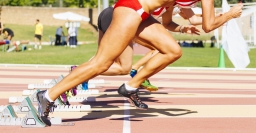The Placebo Effect: Why the mind is a powerful thing
Wednesday, March 18, 2015 - 09:10

The advancement of sport science and sport medicine has brought many fields to work to together in order to maximize athletic performance. Integrated Support Teams (IST) are the norm of today in elite athletics. Such teams consist of physicians, nutritionists, psychologists, biomechanics, videographers, statisticians, etc. all designed to help coaches and athletes in various aspects of training and performance. With all these resources and specialization, why do athletes still believe that using unproven scientific methods will give them an extra edge? The answer may lay in the placebo effect.
A placebo effect is the use of an inactive treatment that can sometimes improve a patient’s condition simply by believing the treatment has worked. It does not have a direct physiological effect since the “sugar” pill does not contain any active compounds. But psychologically it can be beneficial if a patient associates the benefits with a better outcome.
The use of kinesiology tape (KT) might be one of the phenomenon’s that work as a placebo effect. The tape is used to treat and prevent musculoskeletal injuries even though the majority of the evidence on KT has been found to be no more or less superior to other similar products. Furthermore, there is no systematic evidence to support that KT helps prevent or treat musculoskeletal injuries. Despite all these findings, kinesiology tape can have a modest effect on reducing pain and improving the range of motion in injured athletes.
Other research has also looked into ergogenic aids such as caffeine. Though caffeine has been found to enhance performance, especially during endurance events, it has also been found to work during experiments when used as a placebo. A study done on seven cyclists on three different trial tests looked at caffeine when used as a placebo consumed at 4.5mg/kg and at 9.0mg/kg and compared them to their baseline tests. In reality, all subjects at each trial were on a placebo. When the subjects were told they were on a placebo they produced 1.4% less power than at baseline. When they believed they had consumed 4.5mg/kg of caffeine they produced 1.3% more power than at baseline. When consuming 9.0mg/kg of caffeine they produced 3.1% more power than at baseline. This study suggests that while caffeine can have an influence on performance, so can believing you have consumed it; in this case a placebo worked just as well as the real thing.
Despite the fact that there is minimal evidence to support that KT prevents or treats injuries, many athletes continue to use it. As for caffeine, whether you consume it or believe you have consumed it seems to help performance. What they both do well is help relieve pain, which is highly responsive to placebos. The placebo effect, just like in medicine, does seem to have a place in sport performance, especially psychologically. To an athlete, expectations matter and a powerful mind can help.
References from the SIRC Collection:
Beedie C, Foad A. The Placebo Effect in Sports Performance. Sports Medicine. April 2009;39(4):313-329.
Bjørkedal E, Flaten M. Interaction between expectancies and drug effects: an experimental investigation of placebo analgesia with caffeine as an active placebo. Psychopharmacology. June 2011;215(3):537-548.
Brazier J, Sinclair J, Bottoms L. THE EFFECTS OF HOLOGRAM WRISTBANDS AND PLACEBO ON ATHLETIC PERFORMANCE. / UčINCI NARUKVICA S HOLOGRAMOM I PLACEBA NA SPORTSKU IZVEDBU I USPJEŠNOST. Kinesiology. June 2014;46(1):109-116.
Eichner E. Placebos for Athletes: Do They Exist? If Not, Do They Work Anyway?. Current Sports Medicine Reports (Lippincott Williams & Wilkins). May 2013;12(3):134-135.
Kamper S, Williams C. The placebo effect: powerful, powerless or redundant?. British Journal Of Sports Medicine. January 2013;47(1):6-9.